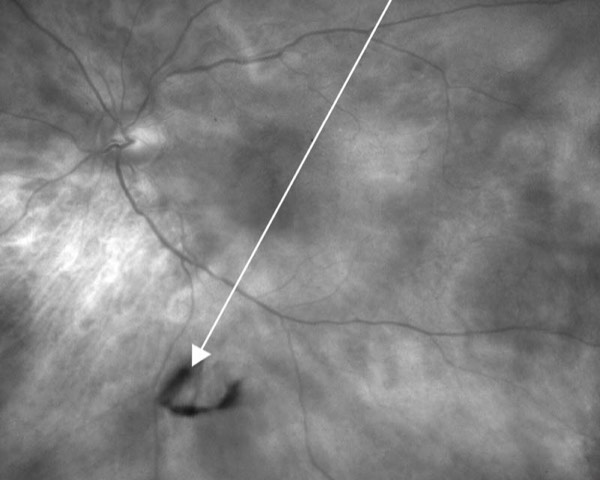What are floaters?
The vitreous humor is a clear gel that fills the main chamber of the eye between the lens and the retina. At a young age the vitreous humor is completely transparent. During aging of the eye the vitreous humor degenerates, losing its shape and partially liquefying. Collagen fibers densify forming nodes or strands. These aggregations of fabric cause shadows on the retina that show as dots, threads, or spiderwebs. These are called floaters or 'mouches volantes' (flying midges). In many cases of continuous degeneration, the vitreous humor can completely detach from the retina, usually between the age of 50 and 60. This must not be confused with a retinal detachment. This posterior vitreous detachment often coincides with an increase of floater disorders caused by the Weiss or Martegiani ring. This ring is a structure in the vitreous humor fixing the vitreous humor to the visual nerve. The above mentioned shrinkage of the vitreous humor detaches it from the head of the visual nerve and lets it float freely before the center of the retina. This especially is extremely disturbing for many patients.
The vitreous humor is a clear gel that fills the main chamber of the eye between the lens and the retina. At a young age the vitreous humor is completely transparent. During aging of the eye the vitreous humor degenerates, losing its shape and partially liquefying. Collagen fibers densify forming nodes or strands. These aggregations of fabric cause shadows on the retina that show as dots, threads, or spiderwebs. These are called floaters or 'mouches volantes' (flying midges). In many cases of continuous degeneration, the vitreous humor can completely detach from the retina, usually between the age of 50 and 60. This must not be confused with a retinal detachment. This posterior vitreous detachment often coincides with an increase of floater disorders caused by the Weiss or Martegiani ring. This ring is a structure in the vitreous humor fixing the vitreous humor to the visual nerve. The above mentioned shrinkage of the vitreous humor detaches it from the head of the visual nerve and lets it float freely before the center of the retina. This especially is extremely disturbing for many patients.

